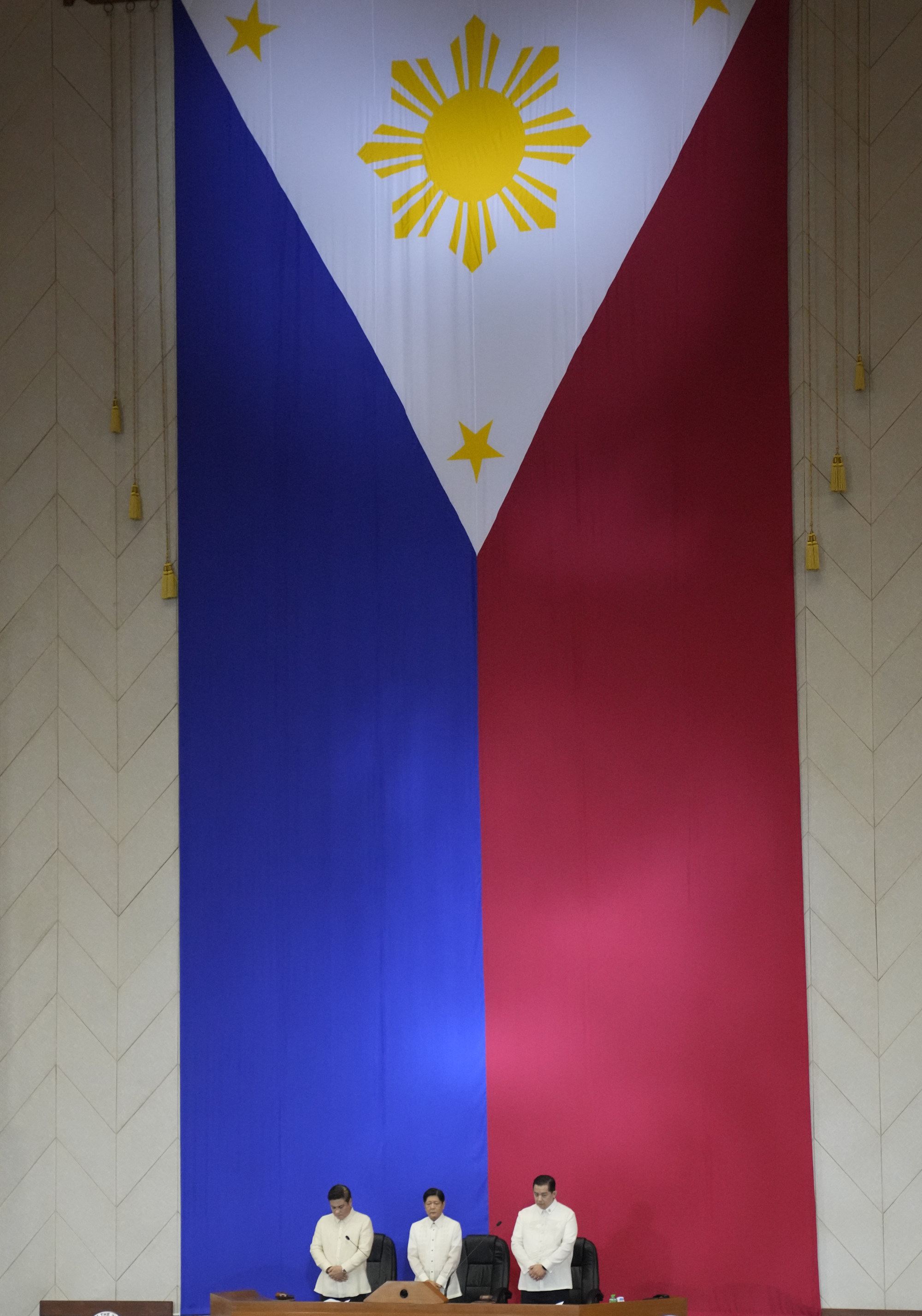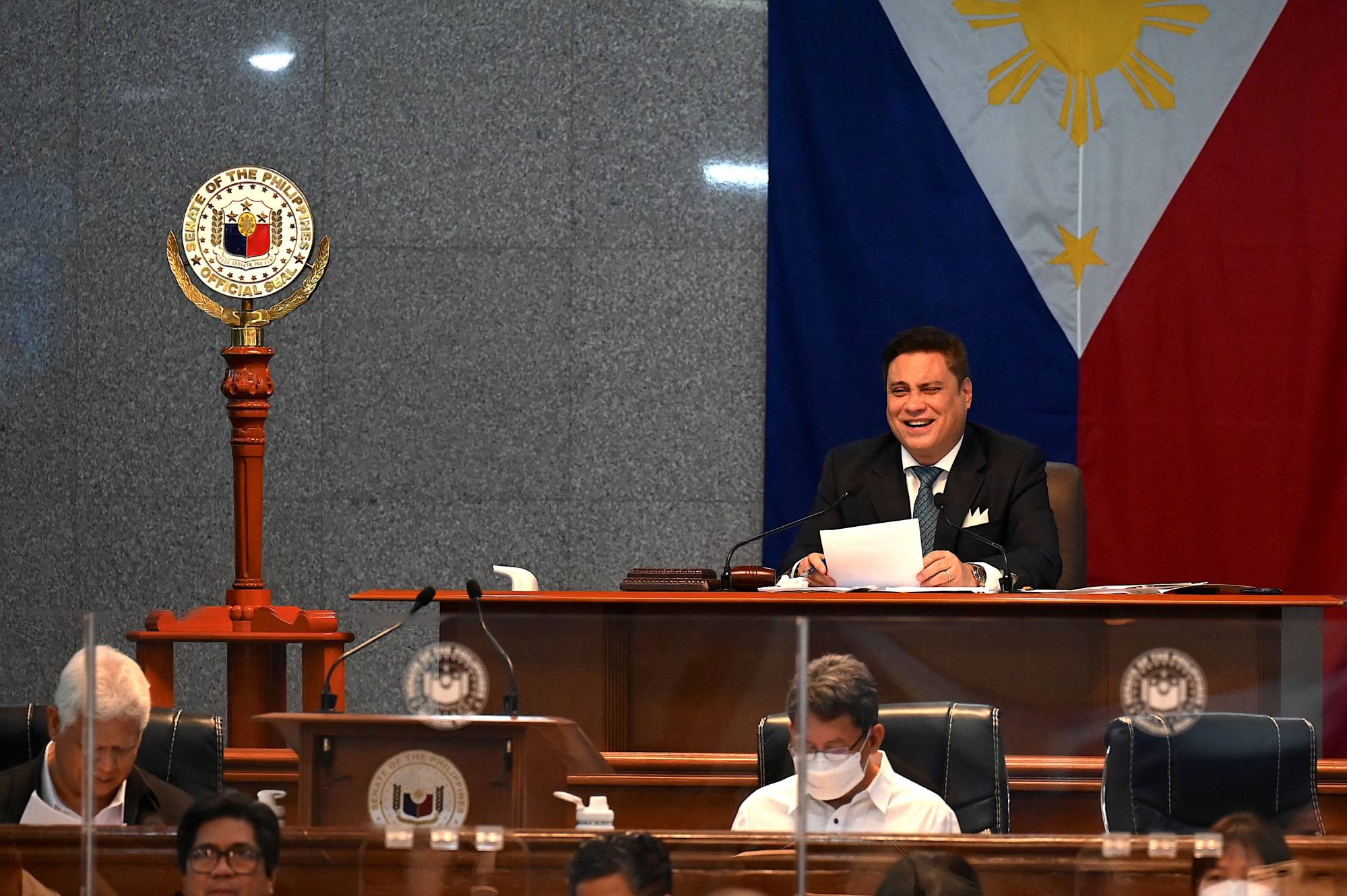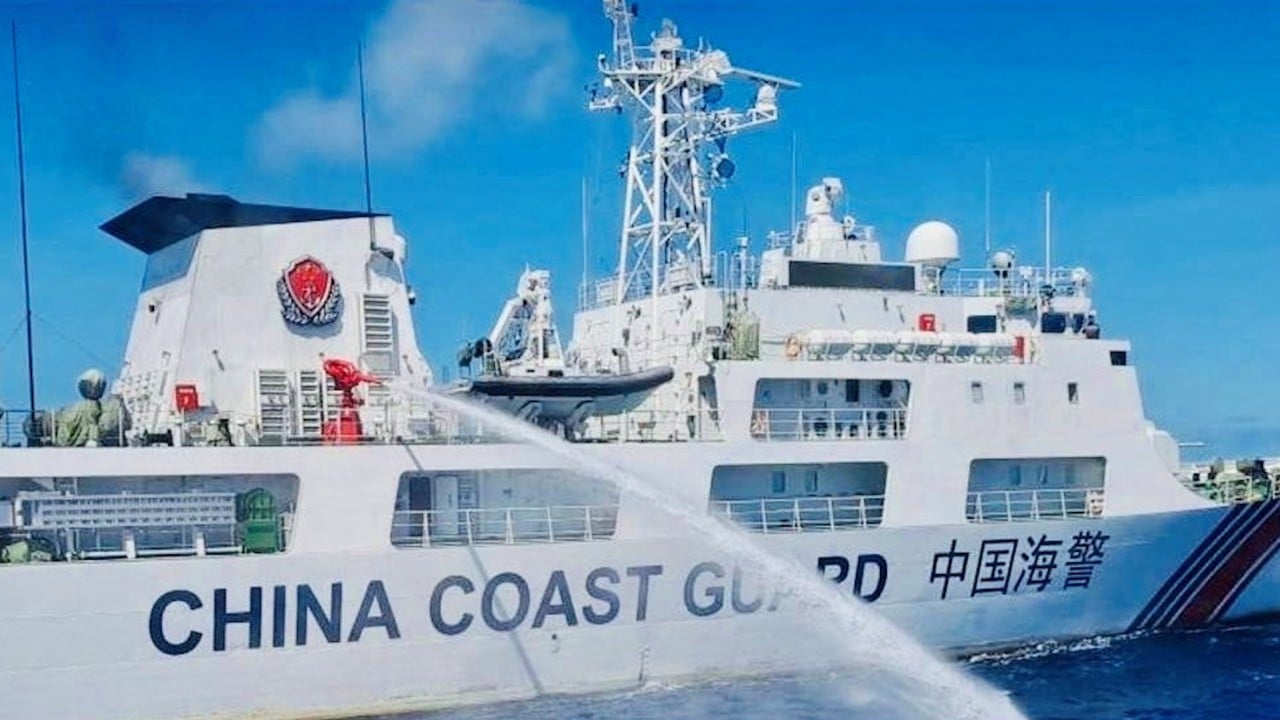
Philippine senate steps up bipartisan support for stronger stance against ‘brazen’ China: ‘stop bullying us’
- Public pressure and the Chinese Coast Guard’s actions against Philippine vessels and fishermen have prompted Philippine senators to take a firmer stance
- The senate move is also in line with President Ferdinand Marcos Jnr who has pivoted from China over the South China Sea dispute
The upper house of the Philippine legislature comprises some of the country’s most well-known political figures, but the 24-member body has long taken a calibrated approach in voicing views about foreign policy, abiding by a quiet bipartisan acceptance that that field is mainly the domain of the sitting president.
Then, the entire senate joined in and approved Senate Resolution 79 – co-sponsored by Zubiri and Hontiveros – “strongly condemning the continued harassment of Filipino fishermen and the persistent incursions in the disputed waters by the Chinese Coast Guard and militia vessels”.

The World War II era vessel, which the Philippines deliberately grounded in 1999 to check China’s advance in the hotly contested waters, has long been a flashpoint between Manila and Beijing.
The latest incident also follows what observers say is a hardening of the official Philippine policy towards Beijing and its claim over the sea – through which some US$3 trillion of trade traverses annually.
Zubiri told his colleagues on the session floor on August 7 that the Senate’s unprecedented, bipartisan approval of SR 79 the week before was “a defining moment for this Senate”.
Hontiveros, Zubiri’s co-author for SR 79, told This Week in Asia: “Since I became senator (in 2016), it’s the only resolution particularly about the West Philippine Sea issue that is solely and principally authored by the Senate president and an opposition senator.”
The sea row was largely ignored by the Senate as an issue when Duterte became president in 2016 and adopted a far friendlier approach to China than his predecessor Benigno Aquino III – who had forced the maritime dispute to go to arbitration at the Permanent Court of Arbitration in The Hague.
Hontiveros credits the senators’ recent dramatic turnabout to public pressure and to the Chinese Coast Guard’s actions against Philippine vessels and fishermen.
China’s recent actions are too brazen, too deplorable to ignore so that it had become injudicious to keep mum on the issue
“China’s recent actions are too brazen, too deplorable to ignore so that it had become injudicious to keep mum on the issue,” she said. “A 2022 survey also showed that 89 per cent of Filipinos want government to assert our 2016 Arbitral Award, so perhaps the Senate as a body could no longer help but echo the sentiments of our people.
“This does demonstrate that when a cause has a groundswell of support from the public, institutions will be hard-pressed not to listen,” she added.
Among the surprise backers of SR 79 were Senator Christopher “Bong” Go, Duterte’s former aide who is of Chinese descent; Senator Alan Peter Cayetano, Duterte’s former foreign secretary; and Senator Imee Marcos, the president’s older sister who continues to urge closer relations with China and a re-examination of security relations with the United States.

Go even publicly told China to “stop bullying us”. Imee Marcos did not explain her vote, but Cayetano tried to soften his vote by suggesting “five ways to ‘peacefully’ deal with China and end the series of aggressions against the Philippine Coast Guard in the West Philippine Sea”.
Among Cayetano’s suggestions were “heartfelt dialogue” with China, the pursuit of the Code of Conduct and “joint exploration of oil and gas with China [since] mutual benefit in a resource leads to peace”.
There could, however, also be a political consideration behind their votes. The incumbent President Marcos has pivoted away from China on the South China Sea issue.
Both Go and Marcos are up for re-election in 2025, while Zubiri’s capacity as Senate president came into question after he recently pushed Marcos to sign the Maharlika sovereign fund law despite serious errors in the approved measure.
Orlando Mercado, a former Senate majority floor leader, explained the impact of the Senate and its 24 members on critical national issues. “In the first place, you have an upper chamber that’s nationally elected” like the president, he said. “So when the Senate speaks as one, it has a persuasive weight.”
While foreign policy is within the domain of President Marcos, the senate is constitutionally mandated to play a role in foreign policy, for instance through the approval of treaties and budgets of the various departments, Mercado said.
He recalled that during the presidency of Corazon Aquino “Malaysia was asking the Philippines to drop the Sabah claim in exchange for prime minister Mahathir Mohamad’s participation in the Asean meet in Manila. “The Senate disagreed,” he said.
He recalled that the Senate also played a historic role when a slim majority rejected on September 16, 1991 the proposed RP-US Treaty of Friendship, Cooperation and Security that would have extended the presence of American military bases in the country.
The rejection was made despite the fact that national elections would be held the following year 1992 and Filipinos were staunchly pro-American.
Mercado said the Senate conducted hearings and debated the issue publicly and extensively. While Salonga failed in his 1992 bid for the presidency, Mercado said he and some fellow rejectionist senators like Wigberto Tanada, Ernesto Maceda and Teofisto Guingona still won. Senator Joseph Estrada, who had even made a film against US bases, won the vice-presidency.
The immediate impact of the Senate’s united stance in the South China Sea could be felt in increased support for next year’s defence budget and more anti-China rhetoric in the papers’ front pages.

Senate President Zubiri suggested this week a boycott of Chinese companies and goods. He also gave a privilege speech on the session floor on Monday, saying “China, why is it so difficult to be your friend and so hard to love you”.
“How can they convince us that they’re sincere when one day they shower a former president (Duterte) of ours with praises and assurances in Beijing, and then shortly after, the next day, they fire water cannons on our ships.”
Zubiri said he was well aware that foreign affairs was the Philippine president’s prerogative. “But how can we not speak up when the very troops who secure our borders and stand in harm’s way have been airing their disgust?”
The Chinese government has long been aware of the Senate’s impact on foreign policy. It thrice invited the Senate president to visit China: in 1995, shortly after Chinese troops fortified Mischief Reef despite Manila’s protests; and in 2004 shortly before Beijing and Manila agreed to undertake joint oil exploration and the Senate made no objection; and in 2017 shortly before Premier Li Keqiang visited Manila and both countries agreed to deepen bilateral relations including in joint oil exploration.


